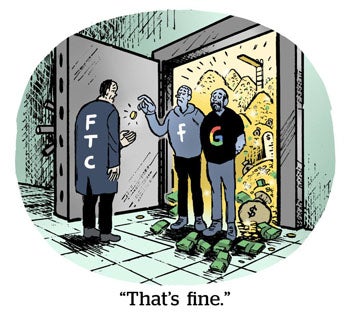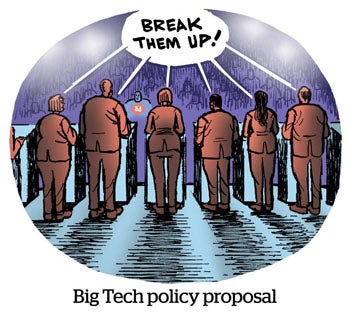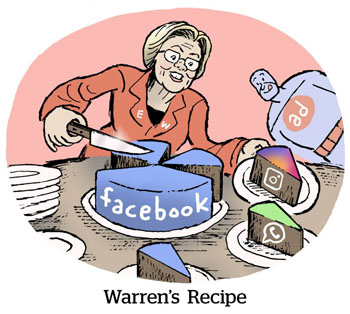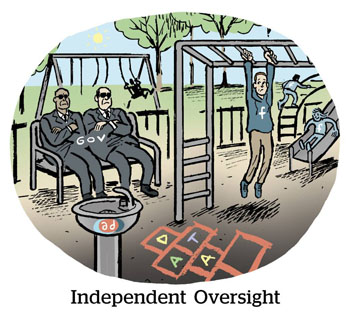Over the last year and a half, Facebook has been embroiled in so many controversial issues, it’s hard to keep track: privacy problems, the spread of misinformation, election interference, improperly secured data, antitrust concerns and, most recently, Facebook’s policy on paid political advertising, which is rubbing nearly everyone, including some of Facebook’s own employees, the wrong way.
For the last few weeks, Zuckerberg has been insistently defending the company’s stance, which, under the guise of protecting free speech and democracy, allows politicians and political candidates to lie in ads on Facebook.
Here’s a rapid-fire review – but strap in. Facebook hits the headlines more in a week than some companies do in a year. (Click here for a Facebook timeline that takes you back to the start: “How Facebook Got Here, From The Dorm Room To The Data Scandals.”)
June 2018
The New York Times reveals that Facebook had been sharing unconsented user data and friend data with device markers, including Apple, Amazon and Samsung, for around a decade.
And thanks to what Facebook called a “bug,” the private information of 14 million users was shared publicly on Facebook, even if those users had selected only to show posts to friends and family.
July 2018
Facebook submits a more than 700-page document to Congress with answers to hundreds of questions Zuckerberg didn’t get to answer during his testimony a few months before.
The company’s stock nosedives after it warns investors to expect a high single-digit percentage deceleration in revenue growth in the back half of the year.
August 2018
Facebook shuts down 652 fake accounts and pages with ties to Russia and Iran for engaging in “coordinated inauthentic behavior.”
 The Department of Housing and Urban Development files a complaint against Facebook for engaging in housing discrimination by allowing landlords and mortgage companies to restrict who can see their ads by religion, age or sex.
The Department of Housing and Urban Development files a complaint against Facebook for engaging in housing discrimination by allowing landlords and mortgage companies to restrict who can see their ads by religion, age or sex.
Facebook says it plans to remove more than 5,000 ad targeting parameters that could be used to discriminate against minority groups …
September 2018
… but just under a month later the American Civil Liberties Union files a complaint against Facebook for enabling gender discrimination in job ads through its ad targeting system.
Instagram founders Kevin Systrom and Mike Krieger abruptly exit the company after reportedly clashing with Zuckerberg over the direction of the product.
Academic researchers discover that Facebook has used two-factor authentication data for ad targeting without telling users, allegedly going so far as to access data pulled from friends’ phones sans permission.
The following day, Facebook reveals that a security breach enabled hackers to gain access to the accounts of around 50 million users. Facebook claims there was no evidence any of the data was stolen or misused. A few days later, Facebook dispatches Carolyn Everson, its head of global marketing solutions, to Advertising Week in NYC packing the usual earnest apology.
November 2018
Facebook cuts ties with Definers Public Affairs, the controversial PR consulting firm that allegedly helped spread damaging information about Facebook’s critics and rivals.
December 2018
A parliamentary committee in the United Kingdom obtains and makes public a trove of emails related to a 2015 lawsuit brought against Facebook by developer Six4Three, maker of an app that would let people find pics of their friends in bathing suits (for some reason). Six4Three alleged that a change in Facebook’s data-sharing policy drove it out of business. Although Facebook doesn’t sell user data directly, the emails demonstrate that Facebook did at one point consider charging advertisers for API access.
Facebook reveals a security bug that exposed the private photos of up to 6.8 million users to 1,500 third-party developers. Despite being required under the General Data Protection Regulation (GDPR) to disclose data breaches within 72 hours, Facebook waited two months to tell the Irish Data Protection Authority, its lead regulator in Europe, about the mishap.
January 2019
TechCrunch reports that Facebook has been paying users between the ages of 13 and 35 up to $20 a month to let the company collect a wide swath of personal data through a VPN dubbed “Facebook Research.” Facebook’s involvement wasn’t disclosed to users until the sign-up process. Apple booted the app from its App Store for privacy violations as a result of the story.
February 2019
 Following a three-year investigation, Germany’s antitrust agency says that it will restrict Facebook from combining user data across its properties without specific and voluntary user consent. (Facebook later appealed the judgement and won.)
Following a three-year investigation, Germany’s antitrust agency says that it will restrict Facebook from combining user data across its properties without specific and voluntary user consent. (Facebook later appealed the judgement and won.)
March 2019
Around the one-year anniversary of the Cambridge Analytica revelations, Zuck publishes a blog post expounding on the importance of data security and end-to-end encryption.
A little over a week later, Facebook is called out for storing hundreds of millions of user passwords in plain text going back, in some cases, as far as 2012.
April 2019
Researchers discover that more than 540 million user records were stored on insecure Amazon Web Services servers for years. A couple of weeks later, Facebook acknowledges a separate security snafu by which it has been harvesting 1.5 million email contacts, without user knowledge or consent, since May 2016.
On its first quarter earnings call, Facebook alerts investors that it’s setting aside $3 billion for a potential FTC fine over Cambridge Analytica-related privacy infractions.
Zuckerberg delivers a speech at the F8 developer conference during which he declares that “the future is private.”
May 2019
Facebook bans Infowars, its host Alex Jones and a host of other right-wing provocateurs for violating its policy against so-called “dangerous individuals and organizations.”
June 2019
Facebook is informed by the FTC that it’s opening an antitrust investigation into the company.
The FTC announces its record-breaking $5 billion settlement with Facebook on July 24 over privacy blunders. It’s the largest fine ever levied against a technology company, but many are dissatisfied with the settlement for not requiring Facebook to admit any wrongdoing.
Facebook reports earnings that same day, beats its numbers and the stock rises, buoyed by investor relief that the fine was manageable and that the FTC investigation (the privacy-related one, at least) is in the rear view.
August 2019
Facebook sues two app developers for using Audience Network to generate fake clicks on Facebook ads.
After a long delay, Facebook slowly starts the international rollout of Off-Facebook Activity, a tool that lets Facebook users see the data that third-party apps and sites pass about them to Facebook, and then disconnect that data from their accounts. The feature is not yet available in the United States.
September 2019
New York Attorney General Letitia James launches a bipartisan antitrust investigation into Facebook, with plans to examine whether Facebook engages in anticompetitive behavior to drive up ad prices. Eight state AGs sign up to participate in the probe.
Criteo files an antitrust complaint against Facebook with the French Competition Authority, claiming that “the gradual exclusion of companies from the Facebook platform has adversely impacted the diversity of the online advertising industry.”
Facebook suspends “tens of thousands” of apps from its platforms for data usage violations as part of an ongoing investigation into how third-party developers use Facebook data.
The Department of Justice reportedly launches a Facebook antitrust probe of its own, despite previously agreeing to let the FTC take the lead on FB. It’s highly irregular for two government agencies to be running parallel investigations into the same company.
October 2019
Facebook settles a class-action lawsuit with advertisers over inaccurate and inflated video metrics.
In an effort to test the limits of Facebook’s political ads stance, Elizabeth Warren runs a paid post on Facebook in which she claims that Zuckerberg is endorsing Trump for reelection. (He isn’t.) Facebook lets the ad stay up, even though it contains false information.
 During a speech at Georgetown University, Zuckerberg claims it’s not Facebook’s place to fact-check political ads. A few days later, Facebook announces a ban on ads that promote voter suppression, but doggedly sticks to its guns on the company’s political ads policy.
During a speech at Georgetown University, Zuckerberg claims it’s not Facebook’s place to fact-check political ads. A few days later, Facebook announces a ban on ads that promote voter suppression, but doggedly sticks to its guns on the company’s political ads policy.
Zuck travels to DC for his now annual congressional grilling during which he defended Facebook’s policy on political ads. He also tried to make a case for its cryptocurrency, Libra, and claimed Facebook has done more than any other internet company to restrict ad targeting for protected categories, such as housing, employment and credit.
Thirty-one additional states join New York AG James’ antitrust probe into Facebook, bringing the total to 46 AGs, plus the territory of Guam.
The The New York Times reports on 250 employees who implored Zuckerberg to reconsider allowing politicians to lie in ads. Sen. Mark Warner, D-Va, echoes these sentiments in his own letter to Zuck the next day.
Twitter announces that it will ban all paid political advertising starting in November. Less than an hour later, Zuckerberg harangues investors on the company’s earnings call about why not fact-checking political ads on Facebook is good for democracy. Facebook beat the consensus on its results.
Facebook agrees to pay a $643,000 fine to the United Kingdom’s Information Commissioner’s Office for the role it played in the Cambridge Analytica scandal. Because Cambridge Analytica took place before the GDPR went into effect, the maximum possible fine the ICO could levy was 500,000 pounds. Facebook makes roughly $3.7 million in ad revenue every hour.
November 2019
Facebook introduces new branding for its products and services in order to differentiate the company’s corporate identity from its titular site and app. But this is more than just a cosmetic change. Facebook plans to add its multicolored new logo – FACEBOOK in all caps – and the words “from Facebook” to Instagram and WhatsApp, as in “Instagram from Facebook” and “WhatApp from Facebook.” Most people don’t know that Facebook owns these other apps, and when they find out, they form more favorable opinions of Facebook, a company whose name has become synonymous with scandal.
[The author of this article needs to lie down now.]
















